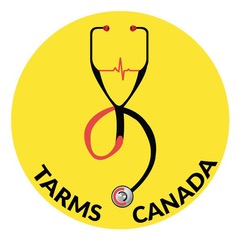The Tamil Association of Residents and Medical Students offers program virtually
Global health is an area of study, research and practice that prioritizes improving health and achieving health equity for people worldwide. This is an area of interest for many medical students, with growing numbers of medical schools offering global health teaching. Interest in this topic stems from the globalized nature of medical practice, related to high-profile, cross-border health issues and increasing multiculturalism. Evidence shows that the most effective methods for integrating global health training are to focus on clinical and scientific topics.
In 2015, the Canadian Federation of Medical Students urged medical schools to work toward offering holistic global health curricular integration. Despite efforts, Canadian medical students continue to have minimal exposure to global health topics. Therefore, students need to do more work to advocate for the complete integration of global health competencies into the medical curriculum. Additionally, the pandemic has halted the experiential learning available to medical students, often in the form of international electives.
 The Tamil Association of Residents and Medical Students Canada, established to represent Tamil trainees in medicine, offers comprehensive professional development programs to medical trainees. The association created the Global Health Talk Series to provide students with opportunities to interact with clinicians in the field and explore core global health topics. Due to the pandemic, the program was held virtually. As a result, international medical students, alongside undergraduates and graduate students, were welcomed to the program.
The Tamil Association of Residents and Medical Students Canada, established to represent Tamil trainees in medicine, offers comprehensive professional development programs to medical trainees. The association created the Global Health Talk Series to provide students with opportunities to interact with clinicians in the field and explore core global health topics. Due to the pandemic, the program was held virtually. As a result, international medical students, alongside undergraduates and graduate students, were welcomed to the program.
Six live online events were held over the 2020-21 academic year. Topics included the challenges of palliative care in developing countries, emergency maternity care, population health, global surgery, food access and policy, and global mental illness. Zoom was used to facilitate student-clinician interactions with polls, breakout rooms and chat functions to promote discussions. The association awarded a global health certificate to participants who attended at least five of the six events or completed reflections on the uploaded Global Health Talk videos.
The Global Health Committee at TARMS surveyed 31 participants who were eligible for the certification. Of those, 20 were medical students, with nine Canadian and 11 international medical students. The remaining three were graduate students and eight were undergraduate students. Students agreed or strongly agreed that the program positively impacted their education experience and that the information presented was beneficial (96 per cent and 94 per cent, respectively). Many expressed satisfaction with the online version of the program and had a positive overall experience (100 per cent and 97 per cent, respectively). Most agreed or strongly rated the knowledge and lecturing styles of all the speakers and the overall quality of speakers (100 per cent and 97 per cent, respectively).
Three common reasons prompted participants to attend the certification program. First, they had a pre-existing interest in global health and wanted to learn from experienced clinicians. Second, individuals said the speakers and topics piqued their interest. Finally, the ability to earn a certificate and the accessibility that comes with online delivery encouraged participants to attend. Many agreed that the program greatly supplemented their current global health education, regardless of whether they were medical or non-medical trainees. Although some participants had no global health education, they expressed a belief that these topics should be covered in their medical school curriculums.
The program impacted students in three common ways. Students appreciated the diversity of topics and the unique perspectives. They also suggested future topics, such as health and the environment, global pediatric health, prosthetic medicine and vector-borne diseases. Participants found the small group activities engaging and enjoyed hearing views from international students and professionals at different levels of training. They appreciated the speakers’ personal anecdotes and interactions with them during questions-and-answers sessions.
As professional education diversifies, institutions are seeking innovative ways to deliver extracurricular content. Distance learning offers access, flexibility and scalability. The pandemic has forced organizations to quickly adapt to remote learning, exposing the intersection between education and digital capabilities. It is imperative that programs such as the Global Health Talk Series also adapt to provide students with more learning opportunities. The online platform also provides a global network of students and offers benefits through peer-to-peer knowledge exchange.
Research has found that there are positive outcomes to global health education. Students report a broadened global perspective, a deeper understanding of medicine in low-resource settings and improved cross-cultural competencies. Many Canadian medical schools allow international electives but without adequate training, the students often face challenges abroad. Data suggest that fewer than 30 per cent of students participating in international electives are prepared for their overseas experience. With supplementary education early in their training, students can connect with experts and establish sustained partnerships that will help them in their overseas electives.
In the age of globalization, physicians must demonstrate cross-cultural competency and understand existing and newly emerging global health issues. This review of the Global Health Teaching Series, conducted a year later, concludes that the program may be an important addition to co-curricular medical education because it provides virtual access to global health content that supplements the current curriculums. We are aiming to expand the program to more Canadian and international medical schools.
This article was written by:
Keshinisuthan Kirubalingam, MClSc. Queen’s University, Med Class 2023
Dilakshan Srikanthan, MSc., Queen’s University, PhD Candidate 2025, Med Class 2027
Lavania Jeganathan, BSc., University of Toronto, MSc Class 2024
Kopica Thayaparan, BSc., McMaster University, MBA Class 2022
Thusanth Jogarajah, MD, Richmond Gabriel University School of Medicine
Nades Palaniyar, PhD, University of Toronto, Faculty of Medicine